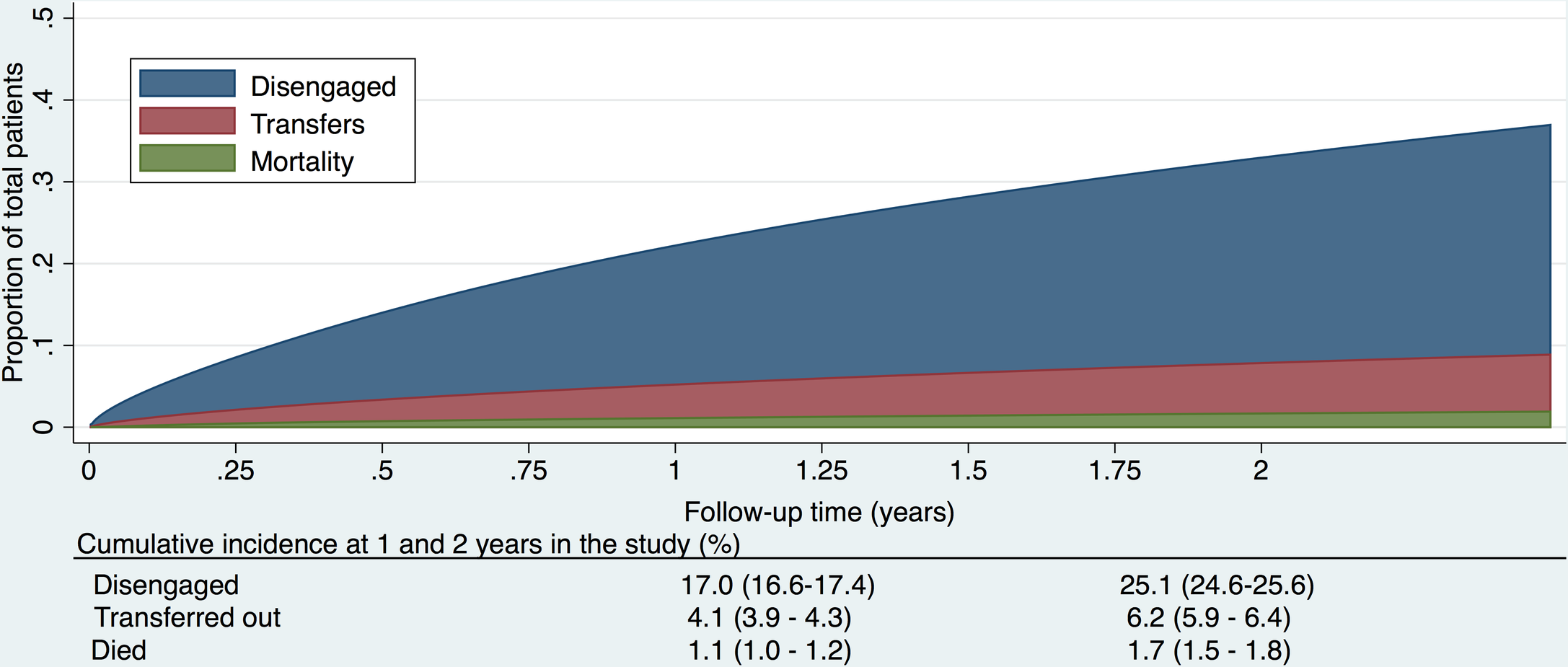Care providers in ART care to reconsider measures of care retention

Retaining people living with HIV in care: dynamics of disengagement
An analysis of data drawn from Khayelitsha ART clinics has shown that care providers may need to reconsider measures of retention in care for highly mobile populations.
Nearly 23% of patients registered at public-sector antiretroviral therapy (ART) clinics in Khayelitsha, Cape Town, did not return for care for periods of six months or more. Dr Samantha Kaplan and colleagues from the University of Cape Town (UCT), Médecins sans Frontières, and the Department of Health (Western Cape Provincial Government), analysed data gathered from nearly 40 000 patients at 13 Khayelitsha ART clinics over a period of two years (2013–2014) and identified a pattern of cyclic disengagement from care. Their publication on the research was highlighted in the November 2017 PLOS Medicine Special Issue: Advances in HIV Prevention, Treatment and Cure.
The researchers found that 9005 patients (23% of the total) disengaged from care. The factors most strongly associated with disengagement from care were: if the person had a CD4 count less than 350 cells/µl at their most recent assessment; if the drug stavudine was prescribed at their last visit; and if they were pregnant when they started ART. Other important factors associated with patient disengagement were age under 30 years and male sex.
In contrast, the analysis showed that belonging to an ART adherence club was associated with retention in care, as were characteristics such as a baseline CD4 count of less than 350 cells/µl, and suppression of viral load during treatment.
“The results of this study indicate that leadership and funders of large-scale sub-Saharan African ART programs may not be measuring retention in ART care in a way that is most patient-centred or accurate. Globally, we may need to re-frame how ‘retention’ in care is reported, given the mobility of many urban populations, and therefore give patients more leeway and flexibility in the ways that they maintain lifelong care.”—Dr Samantha Kaplan
Although many people disengaged from care, half were estimated to have returned by 2.5 years post-disengagement. Acknowledgement of the cyclic nature of engagement in care and incorporation of improved strategies for retention into HIV management policies and treatment guidelines will be essential to achievement of HIV treatment targets.
Citation: Kaplan SR, Oosthuizen C, Stinson K, Little F, Euvrard J, Schomaker M, Osler M, Hilderbrand K, Boulle A*, Meintjes G*.(2017) Contemporary disengagement from antiretroviral therapy in Khayelitsha, South Africa: A cohort study. PLoS Med 14(11): e1002407. https://doi.org/10.1371/journal.pmed.1002407
Dr Kaplan received a Fogarty Global Health Fellowship to support her work at UCT, which was supervised by Professor Andrew Boulle and Professor Graeme Meintjes of Wellcome-CIDRI-Africa. She subsequently received her medical degree from Yale University and is currently a physician at the University of Washington.
Profs Boulle and Meintjes are joint senior authors of the paper, and supervised the study.

